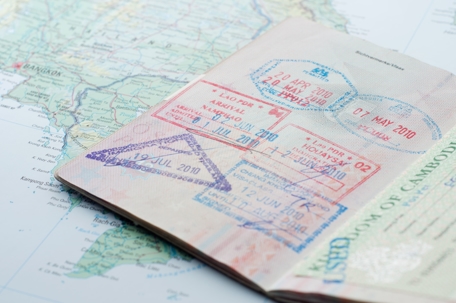At Panteva Law Group LLC, we are committed to keeping immigrants throughout Chicago informed about the latest news that might impact their status or immigration cases. Here are some of the major current events in immigration you need to know about for the month of November:
End of the Year EB-5 Reminder
The U.S. Department of Homeland Security published a new rule that will enact several changes to the EB-5 Immigrant Investor Program. The changes go into effect on November 21, 2019. The new rule will:
- Provide priority date retention for certain EB-5 investors.
- Increase the required minimum investment amounts to $1.8 million (from $1 million) to account for inflation.
- The minimum investment in a TEA will increase to $900,000 (from $500,000) to account for inflation.
- Future adjustments for inflation will occur every 5 years.
- Reform certain targeted employment area (TEA) designations.
- Clarify USCIS procedures for the removal of conditions on permanent residence.
H-1B Registration Rule
The Department of Homeland Security (DHS) will move forward with the agency’s plans to impose a $10 non-refundable fee for each H-1B registration submitted by employers petitioning on behalf of immigrants. The $10 fee will become mandatory when USCIS implements the new H-1B cap registration requirement. USCIS hasn’t announced the timeline for this requirement. Acting USCIS Director Kenneth T. Cuccinelli has suggested that DHS plans to implement the registration requirement for the FY 2021 cap season.
L Blanket
The State Department has updated its guidelines for adjudication of blanket L visa applications. Under the new guidelines, L visa applicants must demonstrate their eligibility by showing “clear and convincing evidence” to consular officers. The officer s have been ordered to deny blanket L applications if questions about the applicant’s eligibility cannot be quickly and easily verified during the interview.
Blanket L applications at U.S. consulates are subject to far more scrutiny than L visa petitions at USCIS. This is because blanket L-1 visa applicants must prove that their applications are “clearly approvable,” while USCIS petitions are reviewed under a less stringent “preponderance of the evidence” standard. While the State Department’s new guidelines won’t alter the clearly approvable standard, they likely will result in more frequent application denials by consular officers.
Employers and foreign nationals should be prepared for tougher blanket L visa adjudications under the new guidelines. During the visa interview, applicants should be prepared to describe their work experience, skills and job responsibilities in clear and succinct language to minimize the risk of denial.
National Interest Waivers Can’t Be Challenged in Federal Court
Lawsuits filed in federal court over erroneous denials of visa petitions by USCIS have become much more frequent in recent years. Petitioners have a better shot at a reversal when a federal judge reviews a denial of the USICS. According to the Administration Procedures Act, a court must set aside an agency action that is “arbitrary, capricious, an abuse of discretion, or otherwise not in accordance with the law.” 5 U.S.C. §706(2)(A).
Seeking review in federal court under the APA is far more powerful than appealing a denial to the USCIS’s Administrative Appeals Office, which rarely reverses denials. Sometimes, however, a challenge in federal court can get denied if the court finds that it has no jurisdiction to review a discretionary decision under §242(a)(2)(B)(ii) of the Immigration and Nationality Act.
In Poursina v. USCIS, the plaintiff in the case discovered that federal courts don’t have the jurisdiction to review a denial of his request for a national interest waiver under the jurisdiction stripping §242(a)(2)(B)(ii) because the granting of a national interested waiver is inherently discretionary.
USCIS Fees Increasing
The Trump administration has plans to increase the cost of citizenship applications by 83 percent for roughly 9 million immigrants who are eligible to become U.S. citizens. According to U.S. Citizenship and Immigration Services at the Department of Homeland Security, “current fees do not recover the full costs of providing adjudication and naturalization services."
The citizenship application fee would increase from $640 to $1,170 and fees associated with legal permanent residency will go up 79 percent — from $1,220 to $2,195.
Get In Touch With Our Law Firm Today
If you need help resolving your immigration issues, our team of experienced attorneys is here to guide you through each step of the legal process. We have the extensive resources and legal insight that you need on your side to secure a visa or successfully apply for U.S. citizenship. We are here to serve you!
Give us a call today at (312) 471-0014 to request a consultation with one of our compassionate immigration lawyers.

